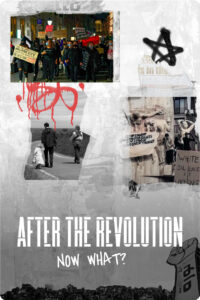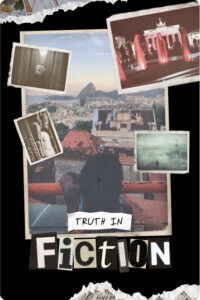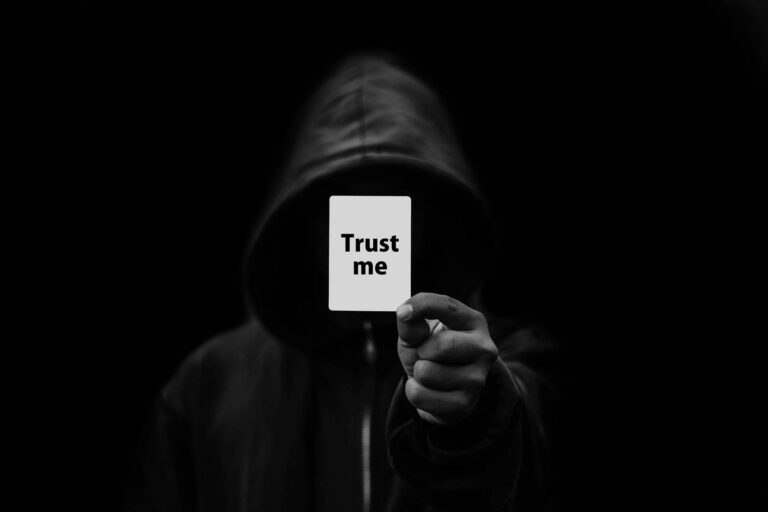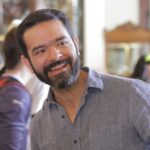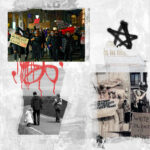The term ‘conspiracy theory’ has more to do with the relation of people to power, than that of people to truth.
James Bridle New Dark Age. Technology and the End of the Future
Smallsbury, 2016 — Spectacle
“How is it that nobody’s doing anything?” Edgar Maddison Welch would ask himself this question repeatedly. Sometimes while staring at his friends in awe. Other times, while watching his daughters play in the backyard, in their own private “Smallsbury” – as they liked to nickname Salisbury – in North Carolina. The thought would also strike him while driving his truck at dusk, in silence, after having turned off the radio while some bland new tune, on heaving rotation at the moment, had started playing. At times, the dullness of the musical repetition mingled with his disgust at the situation. In a strange symmetry of sorts, it would become the unintended soundtrack for his own musings. Anyhow, it wasn’t as if anything was actually a secret. In due time, everything comes to light. But maybe these guys were covered and shielded from any legal interference. After all, this was DC, not some forgotten Midwest county. Unless there is a political collusion, nothing can remain hidden for so long. These things run high and many have matters to conceal. The usual tit-for-tat, everyone protecting their own guild.
Ever since he had come across the story for the first time, Maddison had been absolutely caught up in his own conjectures. A naturally inquisitive person, he enjoyed listening to fringe opinions and libertarian views – with alternative medicine as his favorite topic. Like a lot of his friends, he had witnessed relatives struggle with an illness. After a series of messy diagnoses, they had passed, helplessly. And experts had lost his trust. For him, the entire medical system was a web of resource extractors that would not really care about anyone unless they saw the statements from a bank account first. So he was naturally skeptical of any authorities or governing echelons. But this time it was different. The assumption implied a deeper analysis of some of Wikileaks’ revelations. Back in October, the news platform had managed to disclose 20,000 emails from John Podesta – Hillary Clinton’s campaign manager – who had been hacked earlier, in March. Wikileaks put them out there for the folks to see with their own eyes. In their typical tradition, you know – no intermediation. That decision was striking, and consistent with their own radical libertarianism. No wonder Julian Assange was being held at the Ecuadorian Embassy in London, eternally submerged in legal entanglements. “They are never gonna let him out” – Maddison often thought to himself.
So indeed, people began ruminating and digging, making connections. Until an anonymous 4chan* user posted a credible link to a website with evidence: Bill Clinton had been seen as a passenger of the “Lolita” Express –you know, Jeffrey Epstein’s private airplane. Photographs proving Clinton had travelled several times and to different places with Epstein lingered on the internet. So, if the source said sex trafficking was involved, this was enough to sustain it. Or so Maddison reasoned. The page also related the pedophile ring to the Comet Ping Pong Pizza Parlor in DC. Its owner had exchanged messages with Podesta regarding the organization of a fund-raising dinner. Then another 4chan user came out with a list of words and their hidden meaning to interpret and understand the e-mail exchanges. “Hotdog” was a secret code for boy, “pizza” stood for girl, “cheese” for little girl, “pasta” for little boy, “walnut” for person of color, “sauce” for orgy, etc. Once read under this guise, the restaurant’s menu actually made sense, Maddison pondered with revulsion… And somebody had to do something about it.
It didn’t take a lot of time for him to make up his mind. He was not just going to witness the suffering of these children while the whole world was distracted by the electoral folly. On Sunday, December 4th, he got his A-15 assault rifle ready and headed towards Washington DC. He told his family he had something to do. Along the six-hour journey, he recalled Alex Jones’ radio show from the previous Friday which had reminded its whole audience of the existence of the aberrant ring. Maddison thought about the fact that he was to accomplish something fair, how he could answer the expectations that a lot of people had but that no one really dared to act upon.
When he arrived at the pizza restaurant, in Connecticut Avenue, at around 2:30 in the afternoon, the place was closed. He did not expect that. Who closes a pizza place for Sunday lunch? Very suspicious indeed… Maddison didn’t know that the place was closed everyday until the evening. He got hold of his rifle and came out of his truck, with the firm impression that something nefarious was going on. He rang the bell and somebody actually opened the door. He went inside and very quickly came across a man with an apron. Maddison was nervous, so he pointed the rifle at him and asked about the premises, the ongoing activities… The man said he was only an employee, and his answers didn’t serve Maddison in any way. It was obvious the guy was distressed, so Maddison let him go after a couple of minutes. After that, he really lost sense of time. He began wandering aimlessly inside the place, but there was not much to witness. He fired his rifle just out of frustration, or just to see if he could spark a scream. Nothing else happened. And then, all of a sudden, the cops were outside, commanding him to turn himself in through a speaker. It became obvious he was not going to save anyone that Sunday.
Medellin, 2015 – Interventionism
Dana was close to a burnout already. She had been assigned a special mission by the International Red Cross Committee in Colombia, after having served in Chad, Congo and Zimbabwe. Her current task was to interview the individuals from the FARC militias that had been imprisoned by the Colombian army. She began her days very early in the morning. By 8 a.m. she was usually set, already at the headquarters, close to downtown Medellin. She would go through stacks of documents, revise cases, compare old reports and recent news. She was really devoted and wanted to contribute to an understanding between these two traditional quarreling forces. Besides, the president Juan Manuel Santos had already let slip that there could be a plebiscite the next year which would allow them to sign a peace treaty. So Dana was under a lot of pressure to provide both parties with material that would improve an understanding of each others’ position. She felt a sense of duty in producing neutrality.
Dana felt very committed to the warm and joyful people of this country. Every morning, for the last week, she had been noticing a woman in her sixties, looking a bit adrift and holding herself to the entrance fence, following from there the movement of the people who went into the building. Every now and then the woman would approach someone, quite randomly, and ask something Dana couldn’t hear. The day before, a colleague had told Dana that the woman was looking for someone to help her, although it was unclear what exactly she was pleading for. So that day Dana actually decided to talk to her personally. The woman was there, quite in time. As she met Dana, who greeted her politely and was actually paying attention to her, a soft shimmer brightened her face, she was really just thankful she was being heard. Her name was Juana Inés. She had heard from someone that the Red Cross Committee could help her. She told Dana she was looking for her parents. Well, she actually had an idea of where they were. Indeed, it was more than a suspicion. She felt sure, but couldn’t prove it. She had heard a lot of similar stories and all the other people who had lost sight of someone under similar circumstances seemed to agree as to where their relatives could be held. In any case, Juana’s parents had been part of a guerilla unit during the sixties, when she was very young. They were pioneers at that time, the early years of the FARC, when the spirits were high and the ideals bold. They belonged to the Bloque Sur, and were active under the Trujillo command, but they got to meet Manuel Marulanda and the other divisions. Juana spoke about the hardships with her family, how her parents were constantly away and how she was left with her aunts and grandmother. Dana was intrigued, and invited the woman to proceed with the conversation inside the premises. She thought it was a case worth following.
Once inside, the woman continued with her story. She elaborated with extreme detail – on events she probably hadn’t experienced herself, but which were transmitted to her along the years – how her parents took part in the Second Guerrilla Conference of 1966 and how they were viciously attacked by the government, then almost exterminated in 1967 with the clashes in Quindío and Caldas. Trujillo was killed, but her parents were taken away as prisoners, she claimed. Dana kept listening in awe, even taking some notes every now and then in a small notebook she had quickly fetched on her way in. All the cases she was working on were quite recent, they felt fresh and complex; this was a historical account, and it had an epic flair to it. Dana was mesmerised, but she nonetheless noticed how the woman was able to talk endlessly without needing pause to breath. Juana kept holding her hands together over her lap, quite straight, without making any gestures; she talked as in a trance, with a certain rhythm, and without even trying to elicit an endorsement from her listener. Juana then claimed – it was no speculation, but a certainty she had acquired over the years – that her parents were kept in a secret place, an old mine in the outskirts of Medellin, because of the American government. But there was a reason for that, which had little to do with the Colombian politics. Her father had been working in Jamaica during the fifties, in his freshman years. And he had had the chance to be there when Marilyn Monroe made a hurried trip for her honeymoon with Arthur Miller in 1957. Juana’s father had been appointed as a dedicated garçon to serve them, but he had also made the acquaintance of another man who happened to be there at the same time and who had been struck by Monroe’s charm: John F. Kennedy. According to Juana, the American government had been aware of this connection and wanted to keep it away from the public. For that to work, they needed to silence her father. According to Juana, her parents were being punished unfairly for that. Luckily Juana and her family had managed to put all the pieces together.
After this unwilling confession, something hit Dana. The woman kept talking, saying how the road to the mine was full of overgrown shrubs, in order to make it harder to reach. But Dana was distracted through her own wonder on the reach of such stories this time. She was still looking at the woman, but now reckoning how the elements only fitted together thanks to a far-fetched storytelling skeleton. She stopped taking notes and interrupted the woman to tell her the case was interesting and that they would look into it. Dana knew that was false, but it was her only reasonable way out. Probably the woman felt that too, since she fell into an awkward silence and looked at her suspiciously. Then she just rose up and left. Dana thought to herself this was probably an action the woman had repeatedly rehearsed.
When the next morning Dana went to the office, the woman was there again. Dana was looking to greet her from afar while walking, but the woman didn’t even bother to look back in her direction. For a couple of days the woman continued to appear at around the same time, but then nobody saw her again. Two years later, Dana came across a strange post on Twitter. A user was claiming the American government had been kidnapping people to silence them, because they knew a whole lot of secrets about the political class. The post attracted a lot of attention and was broadly shared. Along the chain, Juana Inés popped up as a user. She was contributing, adding an especially long comment, with a personal account which Dana had previously heard.
Berlin, 2020 – Ruins
Detective Carsten Pfohl received a telephone call on Monday, October 5th, at his office at 9 a.m. As head of Berlin’s Criminal Investigation Bureau, he was usually the last person to be informed of specific cases, since most of the claims involved petty crimes and minor offenses. But after a long weekend, usually things get complicated. So he expected to hear about some trouble in the city’s outer ring. What he was told instead made him raise his eyebrows and wonder for a minute before even knowing how to proceed.
In any case, he made his way to the Hackescher Markt area and parked his car very close to the Museum Island, where he had an appointment. When he got there, he was directed to the office of the Prussian Heritage Foundation, where a group of directors from different institutions were already waiting. There he was briefed again. On Saturday, during the German Unity Day celebrations, somebody had vandalized different pieces at the Pergamon Museum, the Alte Nationalgalerie and the Neues Museum. The damage had been discovered only in the evening that day, during the night shift. It involved a series of visible smudges made with an oily substance over sixty-eight scattered pieces, including Egyptian sarcophagi, stone sculptures, altars and nineteenth-century paintings. But after going through the video security system, nobody had been spotted in any suspicious activity, much less in a patterned assault. It did not seem to be a coordinated attack, as most of the people were seen on the footage,keeping the usual distance from the pieces. The museum directors were visibly perplexed, and upset.
Detective Pfohl was very sensible to the situation and understood the frank challenge of the whole affair. He had been here before, three years ago, investigating the theft of a huge gold coin, the Big Maple Leaf, worth three and a half million euros at the time. But the motifs for that case were clear. They could not even rescue the object in a single intact piece, since the thieves, eager to monetize the gaining, had melted it into smaller golden bricks as soon as they could. Detective Pfohl and his men rightly assumed the burglars had received help from the inside, and two security guards had been charged for their connection with the robbery. The whole lot was brought to justice in the weeks following the incursion.
But this time it was different. It was not the result of a complex orchestration. Just quite enough to make somewhat of a statement, probably achieved by a single individual carrying a set of syringes. Nevertheless, the damages were costly. But what would have been the motivation? If they could understand the idea behind the attack, they could probably reconstruct the whole matter. So detective Pfohl organized three teams, each as a specific task force. One of them would track down and possibly interview some of the people who had visited the museum complex that day. Another one would look into the chemical components of the substance, to deduce its origins. A third one would try to understand the logistics of the assault. In this last one, the art experts, curators and technicians of the museums were involved.
Detective Pfohl supervised the activities in all three groups, but stayed closer to the specialists, in order to gain some insights himself. Within this company, many recalled the insistence with which this very well-known right-wing activist, Attila Hildman – once a rising vegan star who had gained visibility with a cook-book some years ago – had gathered with a horde of followers in July, just outside the museum gardens, to deprecate the Pergamon as a place of Satanist cult and central headquarters of the Corona criminals. In May he had been arrested outside the Parliament, in the context of a protest against the public health measures taken during the pandemic, in which he was one of the lead speakers. In August and September, Hildman had messaged in his Telegram** channel ostensibly outlandish statements: “Here [in the Pergamon] they do their human sacrifices at night and rape children!”
“Well, certainly an incentive, but not enough to charge him with the crime”, detective Pfohl alleged, with some disappointment. “But what is this notion that the Pergamon is the throne of Satan?” Pfohl inquired. One of the museum curators told him that this was a reference to a verse in the Book of Revelation in the Bible. The apostle John had written a letter to each of the seven churches of the Greek world at that time, Ephesus, Smyrna, Pergamum, Thyatira, Sardis, Philadelphia and Laodicea, to resist against the pagans. The curator rushed out to pick up a book from his office and he came back to read out loud to Pfohl and his colleagues. “Here it is what it refers to, from Revelation 2:12, in the letter to the church of Pergamum – ‘These are the words of he who has the sharp, double-edged sword. I know where you live—where Satan has his throne. Yet you remain true to my name. You did not renounce your faith in me, not even in the days of Antipas, my faithful witness, who was put to death in your city—where Satan lives.’” The curator remained silent for a while, and then added: “The text was written in the year 90 approximately, but some years earlier, an enormous statue depicting the Roman emperor had been built in the city and was destined for worship. That is what John was probably referring to. For the first Christians, the demons were all these Greek gods. Then the Renaissance masters really turned them into demonic figures. The ancient god Bacchus is the most beloved model for our devils, with his typical horns and hooves.”
“But you really need to be a fanatic to make the link between an ancient culture and a museum that displays its reconstruction” – said Pfohl, almost exasperated. Everyone nodded in a quiet agreement. “Anyway – he continued – we need to get the perpetrator.”
Each team worked for one week on its own. The first task force could actually get in touch with 650 out of the 3,000 visitors that attended the exhibition that day. The second group could decipher the properties of the oil, a transparent, non-corrosive substance used as an anti-rust lubricant for engines and machines. The third group had gone into the tactics of Hildman’s followers and other QAnon participants in Telegram and the 8chan/8kun*** message board. The crime had been kept out of the public’s notice until then. That had been Detective Pfohl’s tactic. But now, they needed to shake the hive a bit, in order to follow the movement and untangle the exchange of messages.
So he thought about a news conference to let the public know about the deed and the current investigation. He called Christina Haak, the general director of the museums, and told her about his plan. They should prepare for a conference that same day. “We are probably not going to get Hildman – he regretted – but this is going to come on him and his followers. It will stress them. And anyway, the people need to know what these zealots are capable of. There’s no way out.” Detective Pfohl hung up the telephone, put on his jacket and left for the museum headquarters. The crime scene was about to get messy this time.
* 4chan is an internet message board where users can post anonymously, with hardly if any interference from the website’s administration.
** Telegram is an instant messaging app known for its focus on speed and security of data.
*** 8kun, previously called 8chan or infinitychan, is an imageboard website composed of user-made message boards. As with 4chan, the interference from the website’s administration is minimal.

